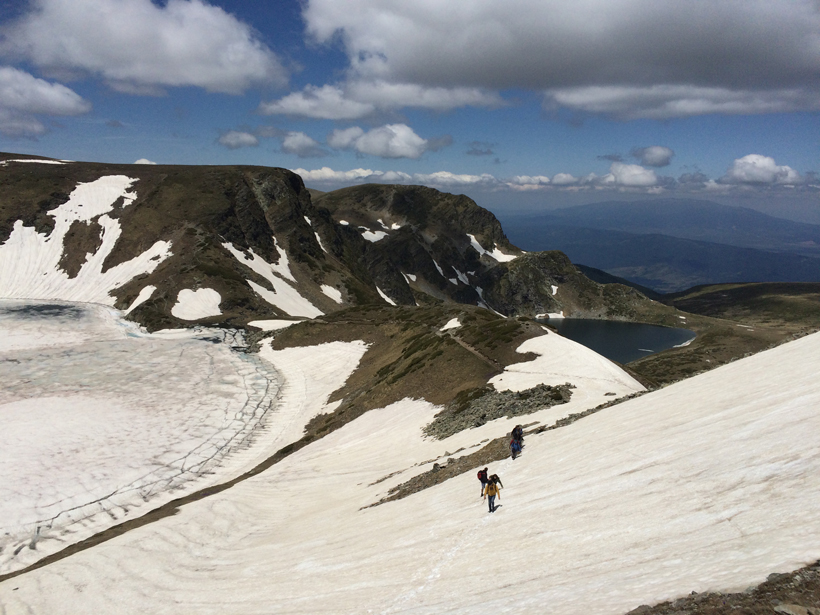Research in the polar regions increasingly addresses questions of societal importance, and the ability of polar researchers to tackle them is facilitated by the free exchange of information. In a 3-day summit in Sofia, Bulgaria, early-career researcher scientists reflected on current trends and future directions in polar science, the practices of data sharing, strengthening researcher networks within the polar science community, and the role of early-career scientists in polar research.
In all, 76 early-career researchers from 25 countries, along with invited mentors from science and policy-related research institutes and international organizations, attended the meeting in June 2015 organized by the Association of Polar Early Career Scientists (APECS). APECS is an international organization that seeks to provide career development opportunities for early-career polar researchers and to promote polar education and outreach.
Participants agreed on the importance of bringing open data to the forefront, making it standard practice, and training the next generation of researchers in its implementation.
Attendees explored a variety of topics over the course of the summit. Participants took part in a training workshop on open science and data management that focused on open communication within the research community and between the research community and stakeholders. Mentor-led discussions emphasized the benefits of integrative databases and data standards and included examples of best practices for data sharing and publication. Participants agreed on the importance of bringing open data to the forefront, making it standard practice, and training the next generation of researchers in its implementation.
Communicating science is an essential skill for all researchers. However, it is rarely included in academic curricula. To address this gap, a summit workshop focused on science communication. Participants and mentors discussed strategies (written, multimedia) and saw examples of communication, education, and outreach activities conducted by early-career scientists around the world.
Another workshop focused on future directions and the importance of international cooperation in polar science. Participants discussed recent assessments, such as the Scientific Committee on Antarctic Research (SCAR) Horizon Scan and the Third International Conference on Arctic Research Planning (ICARP III) and the resulting priorities that will guide future polar research. In a panel discussion on the importance of international cooperation, mentors advised early-career researchers on the development of partnerships and collaborations. In addition to attending conferences and volunteering for working groups, mentors encouraged participation in early-career researcher groups.
With this in mind, participants discussed the future development of the APECS network. Themes emerging from the discussion included maintaining and strengthening connectivity within the polar community (e.g., via data sharing and early-career participation in planning community events) and roles for APECS’s interdisciplinary community in promoting international research and education and outreach collaborations. Results of these discussions will form the foundation for the future strategy of the APECS network, including future APECS world summits.
The authors would like to acknowledge the contributions of José Xavier and Silvia Lourenço in the preparation of this document and those of the summit organizing committee.
—Trista J. Vick-Majors, Montana State University, Bozeman; email: [email protected]; Sira Engelbertz, Gateway Antarctica, University of Canterbury, Christchurch, New Zealand; Gerlis Fugmann, Association of Polar Early Career Scientists, UiT The Arctic University of Norway, Tromsø, Norway
Citation: Vick-Majors, T. J., S. Engelbertz, and G. Fugmann (2016), Focus on the future of polar research, Eos, 97, doi:10.1029/2016EO042993. Published on 8 January 2016.
Text © 2016. The authors. CC BY-NC 3.0
Except where otherwise noted, images are subject to copyright. Any reuse without express permission from the copyright owner is prohibited.

